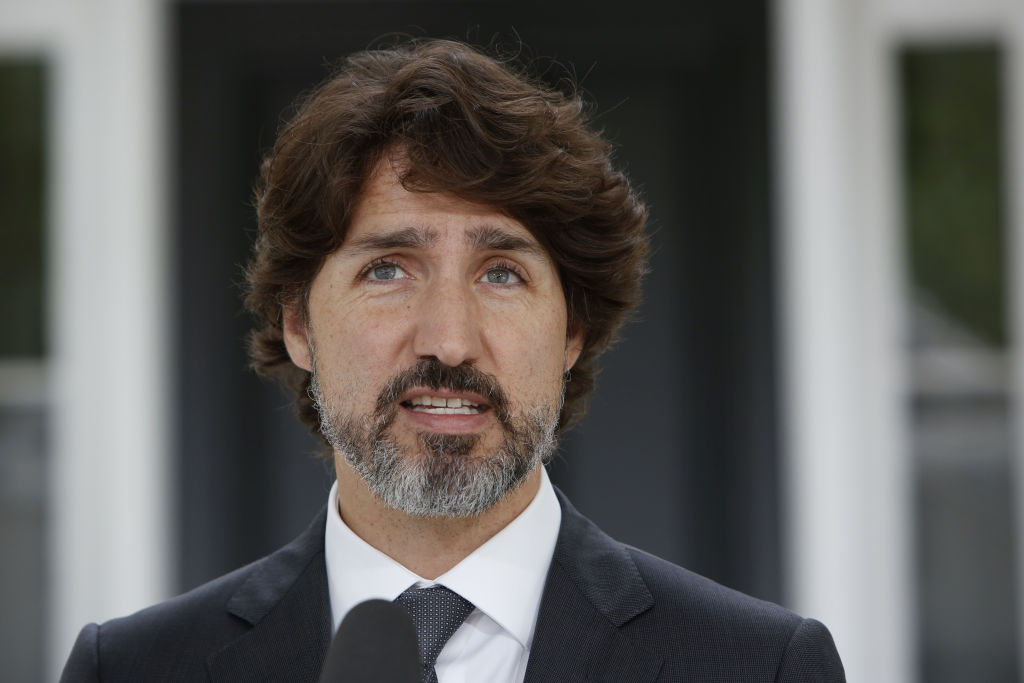
Prime Minister Justin Trudeau and his top diplomat sought to put a brave face on their failure to secure a spot on the United Nations Security Council in one of the Canadian leader’s biggest defeats yet on the world stage.
Trudeau waged a four-year campaign for a council seat in what he hoped would represent a vindication of his foreign policy — a staunch defense of pluralism and multilateralism at a time of global upheaval. But his brand of progressive politics sometimes fell flat and he’s been criticized as being preachy on liberal values.
“We listened and learned from other countries, which opened new doors for cooperation to address global challenges, and we created new partnerships that increased Canada’s place in the world,” Trudeau said in a statement Wednesday after the vote.
Foreign Affairs Minister Francois-Philippe Champagne said at a press conference the country’s campaign allowed Canada to renew and strengthen bilateral connections across the world.
The latest setback is just one of many recent struggles for Trudeau globally, including a deterioration of relations with China and Saudi Arabia and a disastrous state visit to India.
Not Back
But none, perhaps, are as big a personal setback for the prime minister as Wednesday’s defeat. The government had seen a return to the security council as a fulfillment of the Canadian leader’s promise — the day after he took power in 2015 — to bring the country “back” on the world stage.
“Many of you have worried that Canada has lost its compassionate and constructive voice in the world over the past 10 years,” Trudeau said at the time. “Well, I have a simple message for you: on behalf of 35 million Canadians, we’re back.”
Canada received the support of 108 countries of a total 192 that voted Wednesday afternoon at UN Headquarters in New York. Norway and Ireland, Canada’s two rivals, received 130 and 128 votes, passing the required two-thirds majority of 128 ballots.
“It’s really the biggest embarrassment he will suffer in his prime minister-ship in Canada, particularly on international affairs,” said Shuvaloy Majumdar, a senior fellow at the MacDonald Laurier Institute and former adviser on foreign policy in Prime Minister Stephen Harper’s conservative government.
Canada has now been overlooked for the second time in the past decade to become a non-permanent member on the agency’s decision-making body.
Celine Dion
Trudeau pulled out all the stops to woo the international community, including a concert by Canadian singer Celine Dion in New York before the pandemic. Champagne said his boss spoke to more than 50 leaders in recent weeks to make the case, while he had spoken to 130 counterparts.
Nor did Covid-19 slow down Canada’s campaigning. Trudeau co-hosted a virtual UN conference to raise funds for developing countries to fight the pandemic.
“Canada was always coming from behind in this race after starting late. To get over 100 votes despite this handicap is a pretty impressive feat,” said Richard Gowan, UN Director at International Crisis Group, via email. Trudeau and his diplomats “have done pretty much all they could.”
Canada last vied for a spot in 2010 when it lost to Portugal and Germany. It has held a rotating seat six times since the UN was founded in 1945, with the last time being in 1999-2000.
The United Nations General Assembly elects ten countries to the rotating non-permanent seats every 2 years. Voting was done by secret ballot and voted one-by-one to respect social distancing measures, according to a tweet from U.S. Ambassador Kelly Craft.
The security council is made up of 15 members, including 5 permanent members — the U.S., China, Russia, France and the U.K. — which hold veto power.
More Must-Reads From TIME
- The 100 Most Influential People of 2024
- The Revolution of Yulia Navalnaya
- 6 Compliments That Land Every Time
- What's the Deal With the Bitcoin Halving?
- If You're Dating Right Now , You're Brave: Column
- The AI That Could Heal a Divided Internet
- Fallout Is a Brilliant Model for the Future of Video Game Adaptations
- Want Weekly Recs on What to Watch, Read, and More? Sign Up for Worth Your Time
Contact us at letters@time.com